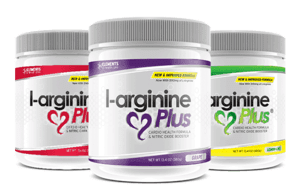There are so many heart disease risk factors it’s hard to keep them all straight. Some are beyond your control, like family history. Others are within your sphere of influence, lifestyle choices you can start making today. No matter what, it’s important to know what the factors are and what to keep a close watch on throughout your life. Know the risks and take steps to a healthier future.
Some Risk Factors Are Outside Your Control
It is important to know what can contribute to heart disease, even if it is outside your control. If you are at greater risk for heart disease, you can take extra care of your heart by following the guidelines of factors within your control. Here are the factors you need to know that are outside your control:
- As you age, arteries harden and blood pressure rises. These and other factors increase your risk of heart disease.
- Heart disease is the leading cause for both men and women in the U.S. but males are at a greater risk of heart disease.
- Family history. If there is history of heart diseases in your family, you are more likely to have heart disease.
- Being post-menopausal puts you at greater risk for heart disease.
Other Risk Factors Are Within Your Influence

High blood pressure
Having high blood pressure means there is more blood beating against the sides of your artery walls – over time, this damages them. Fats can start to collect in damaged areas. Eventually artery walls become hardened. This limits blood and oxygen flow. High blood pressure is often called a “silent killer” because it has almost no outward symptoms. It is important to get blood pressure checked regularly. Learn more about blood pressure and what you can do to lower it by clicking here.
Diabetes
Diabetes comes from not having enough insulin – a hormone that makes glucose (sugar) from food that your body can use. It can cause sugars to build up in the blood, and those with diabetes are at a greater risk of heart disease. Talk to your doctor how you can manage your diabetes to lower your risk of heart disease.
High cholesterol
Cholesterol is a fat-like substance ma de by your liver and also found in certain foods. It plays an important role in hormone production, digesting fats, and is in your cell membranes. But too much can clog up your blood vessels and lead to heart disease.
de by your liver and also found in certain foods. It plays an important role in hormone production, digesting fats, and is in your cell membranes. But too much can clog up your blood vessels and lead to heart disease.
You may have heard of “good” and “bad” types of cholesterol. High amounts of low-density lipoprotein (LDL) can lead to heart disease because it builds up in your blood vessels. High-density lipoprotein (HDL) can provide some protection against heart disease. They collect LDL cholesterol and bring it back to the liver for disposal. Blood tests can tell you your cholesterol level.
Foods that lower your cholesterol include fruits, vegetables, whole grains, beans and good fats. On the flip side, meat (especially fatty meats) and dairy products cause your liver to produce more LDL cholesterol. Processed foods (such as packaged baked goods and commercially deep fried foods) often contain harmful trans fats. These are what you need to avoid the most.
Obesity
Having excess body fat is linked with higher LDL (“bad”) cholesterol and lower HDL (“good”) cholesterol. It is associated with higher triglyceride levels and can lead to high blood pressure and diabetes. A healthy diet, portion control, and regular exercise can help you achieve your weight goals. Talk to your doctor about any concerns you have about maintaining a healthy weight.
An Unhealthy Diet
A diet that includes great amounts of saturated fat, trans fat, and cholesterol will lead to greater risk of heart disease. Too much salt in your diet raises blood pressure. Make sure you’re getting a diet rich in fruits and vegetables, whole grains, and low-fat dairy products.
Drinking Too Much Alcohol
Drinking too much raises blood pressure levels. It also increases triglyceride levels, which hardens the arteries over time. Women should have no more than 1 drink per day, and men should have no more than 2 drinks per day. (This may vary depending on weight and other health conditions).
Smoking
There are three major way smoking leads to heart disease. First, cigarette smoke damages the heart and blood vessels. Second, nicotine raises blood pressure. And third, carbon monoxide reduces the amount of oxygen in your body. Second-hand smoke also increases the risk of heart disease in non-smokers. You can start today by visiting cdc.gov for tried-and-tested practices to smoking.
Physical Inactivity
Not being physically active can lead to obesity, high blood pressure, high cholesterol, and diabetes. However, regular physical activity lowers the risk of heart disease. 30 minutes a day of physical activity lowered a person’s blood pressure significantly, leading to lower risk of heart disease.
What Can I Do Now?

Many of these factors are things you have the power to change. You can avoid heart disease by monitoring your blood pressure and cholesterol, maintaining a healthy weight through diet and exercise, and avoiding harmful substances such as tobacco or too much alcohol. If you are at risk for heart disease, l-argenine can be a simple way to help your heart.
Resources


